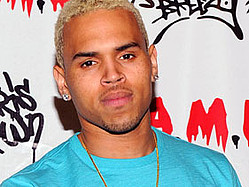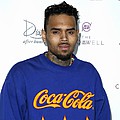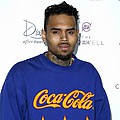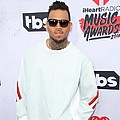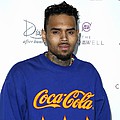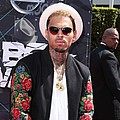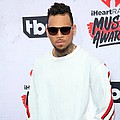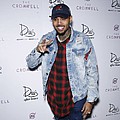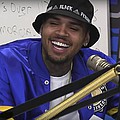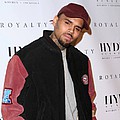On Wednesday, Chris Brown became the latest celebrity to apologize to the LGBT community for using a gay slur in anger. The singer issued a Twitter mea culpa for an incident on Tuesday in which he lashed out at several photographers in Los Angeles whom he believed had tipped off parking-enforcement officers to his illegally parked car, saying, "Y'all n---as is weak. Did you call them to try and film me? Y'all n---as is gay!"
The comments came just days after comedian Tracy Morgan met with LGBT youth in New York following his anti-gay rant during a recent stand-up appearance, which earned the "30 Rock" star widespread scorn from the gay community for his seeming advocacy of violence against gay youth.
The Human Rights Campaign told TMZ that "invoking words to demean gay Americans is just plain unacceptable ... Brown should know better."
Brown, who has made outrageous digital comments before — including a homophobic attack on former B2K singer Raz B in December — only to ask forgiveness for them a short time later, issued an apology on Twitter on Wednesday night, writing, "I have total respect for Gay community and my intention was not to insult anyone in it."
A spokesperson for Brown could not be reached for comment at press time.
Herndon Graddick, senior director of programs for GLAAD (Gay & Lesbian Alliance Against Defamation), told that while it may seem like this kind of casual homophobia is on the rise, what we're seeing might simply be a result of the increasingly interconnected nature of our society. "People are being filmed while getting a parking ticket and commenting on Twitter and there's more opportunity for the things celebrities to say to reach the public," he said. "But I think celebrities and people in the public eye are also increasingly cognizant that they have to respect all of their fans, and when things happen, they have an interest in correcting that behavior."
Brown is certainly not alone in using words that may hurt some of his fans. Two members of the celebrity judging panel on NBC's hit reality singing show "The Voice" have also issued apologies recently for using anti-gay slurs. After a performance with Rihanna in Minneapolis last week, Cee Lo Green posted a Twitter response to a negative review by critic Andrea Swensson, writing, "I respect your criticism, but be fair! People enjoyed last night! I'm guessing you're gay? And my masculinity offended you? Well f--- you!"
After the rant went viral, Green issued a public apology, telling Us Weekly, "I most certainly am not harboring any sort of negative feeling toward the gay community. I don't have an opinion on people with different religious, sexual or political preferences," said Green, who added that he assumed the critic would understand that his comments were "all in good fun" and that he didn't mean any harm. "I'm one of the most liberal artists that I think you will ever meet, and I pride myself on that. Two of the remaining members that I have on my team on 'The Voice' are proud and outspokenly gay. We just did a team performance of 'Everyday People,' and I picked that song for us to do specifically to highlight how we can get along even though we're so different."
Similarly, fellow judge Blake Shelton landed in hot water last month when he tweeted the comment, "Re-writing my fav Shania Twain song ... Any man that tries touching my behind he's gonna be a beaten, bleedin', heaving kind of guy." The original lyrics are, "Any man of mine better walk the line/ Better show me a teasin', squeezin', pleasin' kinda time." GLAAD weighed in, suggesting that Shelton's comments sounded like a threat against any man who took a pass at him and demanded an apology.
Shelton quickly recanted in a series of tweets, writing, "Hey y'all allow me to seriously apologize for the misunderstanding with the whole re-write on the Shania song last night ... It honestly wasn't even meant that way... I now know that [there] are people out there waiting to jump at everything I say on here or anywhere ... But when it comes to gay/lesbian rights or just feelings ... I love everybody. So go look for a real villain and leave me out of it!!!"
Herndon said that with an American public that is more supportive of gay people than ever, not to mention more aware of the impact of harmful language, for better or worse, celebrities are often looked to to set the standard for acceptable behavior. "I think that language can be homophobic and people can as well," he said. "I'm not going to judge the intent of what [Brown] was saying; he was clearly pissed about a parking ticket. But his intent is less important than the actual impact. When people hear other people use the kind of language that makes 'gay' equivalent to 'bad,' it communicates a message, and it's important that people are aware of that. I don't think every time anyone has spoken those words their personal viewpoint is homophobic, but the impact can be damaging."
The string of public anti-gay slurs has also included a number of sports figures, such as Los Angeles Lakers star Kobe Bryant, who was fined $100,000 for yelling anti-gay slurs at a referee in April, and Chicago Bulls' Joakim Noah, who was fined $50,000 in May for directing an anti-gay slur at a fan during game three of the Eastern Conference Finals.
Share your thoughts on the recent celebrity anti-gay slurs in the comments.
